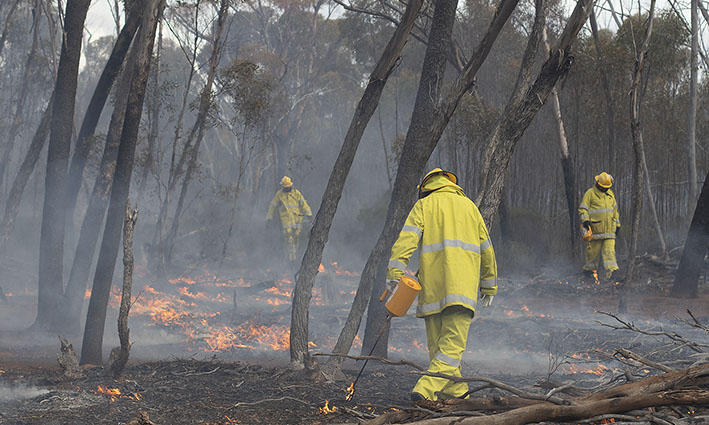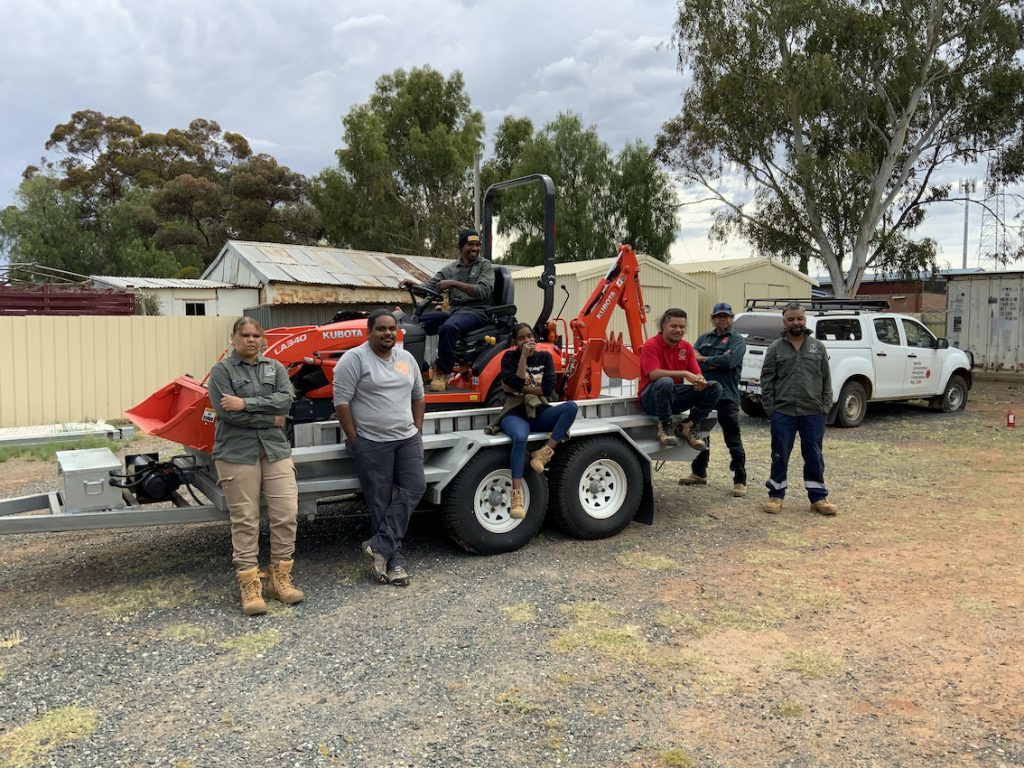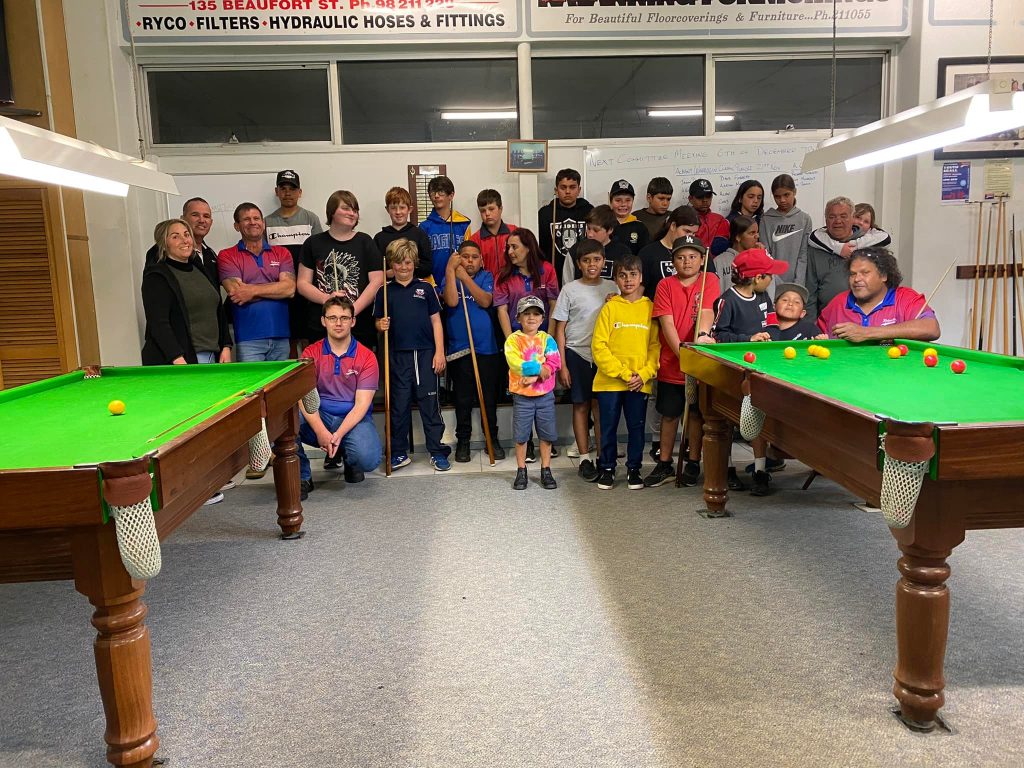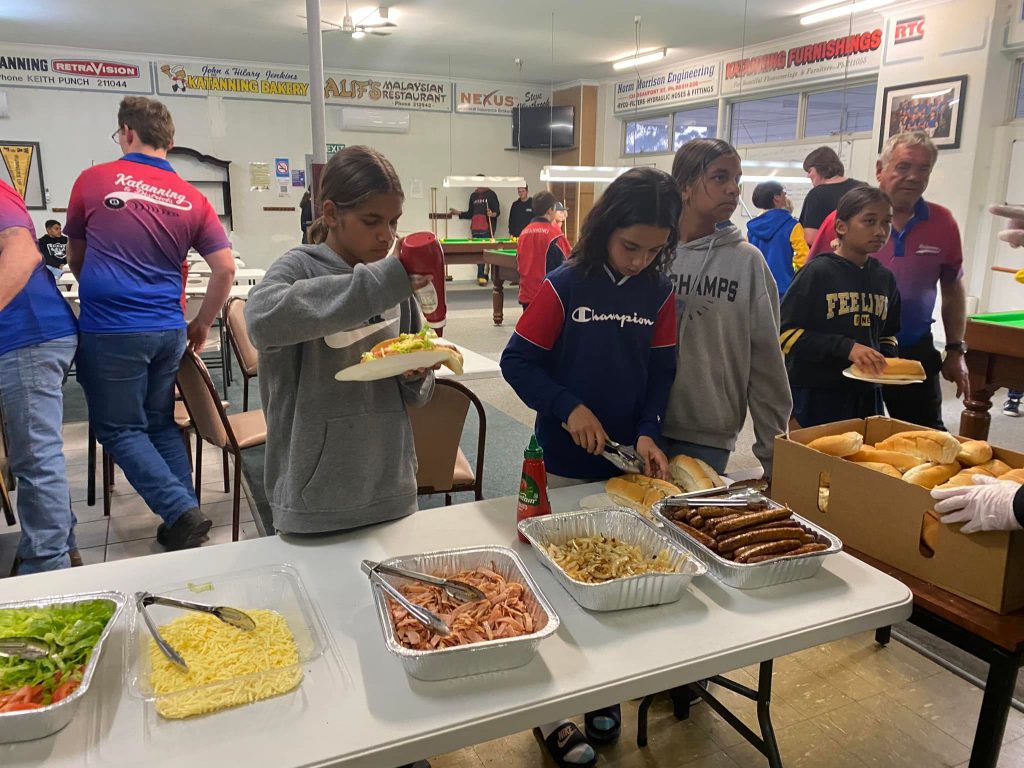Foundation for Rural & Regional Renewal (FRRR)
On Ngadju Country
Late 2019 / early 2020 saw 13 bushfires devastate approximately one million hectares of Ngadju country in southern WA, including large tracts of the Great Western Woodlands, the largest temperate woodland remaining on Earth. It is estimated that the extent of the area of Ngadju country impacted by the fires was equivalent to about half the size of Victoria. The bushfires burnt tracts of old growth forest, overran spiritual sites and destroyed the habitat and nests of threatened species.
Ngadju Conservation Aboriginal Corporation (NCAC) works with the Ngadju community to increase the understanding of conservation and land management opportunities and assist in building capacity to achieve them. Ngadju Rangers use cultural knowledge, refined over thousands of years, to care for the environment and work on Country to manage fire, feral animals and weeds, and to protect mijalkarru (rockholes), the Granites, water places and the flora and fauna of the Great Western Woodlands and the Nullarbor plains.
Following the fires, NCAC received a $25,000 Strengthening Rural Communities grant funded by IKEA Australia through FRRR to help the Ngadju Rangers to both repair the damage and undertake work to protect the environment and cultural sites from the devasting impact of the bushfires. Their approach involves a detailed program of cultural burning to protect sites, old growth and water trees. The mosaic effect of landscape-scale burning benefits biodiversity by reducing the extent and severity of large-scale fire and creates a range of vegetation growth stages and habitats that suit different species. Prior to a burn, Ngadju Rangers and Elders walk through the planned burn site to survey for cultural and environmental values. However, access to the tracks leading to these sites were heavily impacted by the recent fires and also from years of neglect.
NCAC used the grant to commission a specially fabricated trailer with hydraulic tipping for use with their tractor to help the Rangers clear the tracks, enabling safe access to undertake their important cultural and environmental work. This improved access will also allow other Ngadju community members to attend sites and undertake voluntary maintenance and management, which will help them reconnect with Country and transfer knowledge across generations.
Helen Langley, NCAC’s CEO, said that the project wasn’t without its challenges.
“The challenge was the amount of time it took for the trailer to be fabricated and then wired. It took eight months for the trailer to be built and we have only recently received delivery. We are developing Safe Operating Procedures and have organised training for the Rangers so that we can commence clearing tracks and making fire breaks around areas of mosaic burns.
“We are proud that the Ngadju Rangers can now access their Country for cultural burning and they can use machinery to make fire breaks. The project has assisted in rebuilding the Ngadju community and provided healing for community who are mourning the loss of Country.”
For more inspiring stories like this, head to our FY 2021/22 Annual Review.
The small regional town of Katanning, in the ‘heart’ of the Great Southern agricultural region, 287 kilometres south-east of Perth in WA, has a shire population of just 4,200 people. While the area is essentially known for agriculture, the town is a regional centre that offers a range of government, health and education services. The Katanning community also prides itself on its multicultural diversity.
This small community was impacted by a bushfire in February 2020, with rebuilding efforts hampered by lockdowns soon after. The community identified that it needed to find ways to engage their younger residents and keep them connected and supported.
The Katanning and Districts Pool Association Incorporated partnered with the Katanning Hub Community Resource Centre (CRC) and the Shire of Katanning to run a Youth program, inviting young people on a Friday night to come to their pool hall to socialise, learn new skills and share a meal. The program has been an overwhelming success with 35-40 young people attending each week.
The hall opened in the late 80s and did not include any kitchen facilities. Requests to use the hall from other community groups had been slowly increasing, as it is one of only a few indoor spaces available in Katanning. Providing catering facilities would make the venue a more suitable location to support these additional groups and their events. With the changing nature of the activities held at the hall, it was time for a refresh. To create a more usable space for community groups to meet, it was decided to add a kitchen area to better support the Youth program in preparing and serving these meals.
Other groups that use the hall were also supportive, including the local men’s group who expressed support for a kitchenette to make a cuppa and make their own events more welcoming for its members.
Thanks to a $10,000 Strengthening Rural Communities grant, funded by IKEA Australia, the Katanning and Districts Pool Association was able to revamp the ageing pool hall and add a meal preparation and serving area.
Local volunteers provided amazing support for the project, contributing more than 80 hours of labour to the renovations and 20 hours to fundraising each month, ensuring the project’s success.
Since finalising the renovation works, the association’s membership has increased, volunteers have been inspired to become more active and the use of the hall by other community groups has expanded. With the improved facilities making the hall more welcoming, friendly and a safe space for people of all ages, the Katanning community is feeling more connected with access to a space tailored to enjoy each other’s company.
The Katanning Police now drop by during the Youth program and challenge the young people to a game, further strengthening these important relationships. Badgebup Aboriginal cooperation is interested in partnering to deliver the Youth program into the future and the Katanning community are proud of what has been achieved, voicing it regularly in person and via social media.





